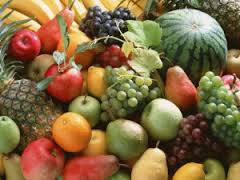How would your holidays be while visiting a Mediterranean country? Except the hot days and sunny places, besides the golden beaches and the green-blue transparent waters, what would you eat? Well when we are thinking of the –upcoming- summer, first and foremost in our minds is the increased consumption of water, Mediterranean vegetables and fruits (and their juices) of this splendid season. Summer particularly in Greece, Cyprus, Israel, Egypt and Morocco can be very hot and the rising temperature results in increased need of fluids, fruit and vegetables (which contain plenty of water). You see, our water and electrolytes are being discharged from the body and thus disrupting the balance of body fluids, energy balance and more.
Beginning with fluids
For this reason you should drink plenty of water (1-2 litres a day depending on the person’s weight), even if you are not yet thirsty, because thirst is an indicator of dehydration already. Indeed, thirst is the first “bell” that rings when our body starts to dehydrate. Water is preferable during the day as well as natural fruit juices and raw vegetables. They are especially rich in water. Just think that on average 85-95% of their weight is water. So they help a lot to improve hydration levels in our body.
Continuing with Seasonal Fruits and Vegetables
Also fruits and vegetables are sources of vitamins, minerals and fibre (cellulose), becoming the second major food group of the Mediterranean Nutrition Pyramid and Diet. They contain no proteins and fats, but enough carbohydrates that will give you energy to endure the morning swim and the night’s dancing exodus!
Most fruits should be eaten with their skins, firstly being washed very well. Cellulose of their peel is valuable for our organism. All red, yellow, green and black fruits contain much vitamin A. Most of the seasonal fruits are rich in vitamin C (eg cherries, strawberries, watermelon, and cantaloupe). Generally, however, fruits are very good sources of several vitamins and minerals and therefore there is no balanced diet without fruits and vegetables.
Also, because fruits contain mostly simple carbohydrates, they quickly raise glucose levels in the blood, making it ideal snack in between meals for instant energy. As a rule we could say that fruits and vegetables should be our allies any time during the day, as they can easily be combined with lots of foods and be part of uncountable dishes. Try fresh and cool recipes with fruits: In Greek yogurt, in salads, with ice cream, in fruit punches, in cocktails, as a dessert, in breakfast, as snack or cider and so on… Any daily nutritional plan rejecting the above should be criticized as unbalanced and away from the real Mediterranean summer.
Vegetables on the other hand, contain usually more water than fruits; have fewer carbohydrates but still many beneficial micronutrients such as vitamins minerals etc and the can be freely consumed. Try a breezy salad, or grab a tomato, some feta cheese and few thin bread slices and enjoy a light yet nutritious meal at the beach!
For all those reasons, seasonal fruits and vegetables should be an integral part of our daily summer diet. Generally 5-6 servings of fruit and 4-5 servings of vegetables a day meet our needs and provide a beneficial effect both in appearance and to our health.
The basic colors are 5!
White, green, purple, orange and red distinguish more fruits and vegetables and classify their components based on respective beneficial actions. Accordingly, we will list those which are already going through the season. The list below will list basically Mediterranean Diet fruits and vegetables.
Don’t be shy, try them!
It is advisable to choose seasonal fruits and vegetables to be as natural as possible (without drugs or hormones). The table below gives some lists for summer fruits and vegetables:
April-May:
Pears, apples, oranges, artichokes, peas, beans
Fresh Onions, Dill, Carrots
Zucchini, Lemons, Cherries, Strawberries, Lettuce
Peaches, Nectarines, Watermelon, Melon, Pears, Plums, Medlar, Beans, Tomatoes
Zucchini, Wild greens, Eggplant, Cucumber
August-September:
Figs, watermelon, melon, vanilla, burnela, Cherry-plum
Yam, Grapes, Zucchini, Tomatoes
Here is a quick and fresh –like a summer breeze- recipe with seasonal fruits!
Budino di fragole (strawberry pudding)
You will need:
500 gr. strawberries
250 ml cream (full)
150g. Sugar
30g. Unsalted butter
125 ml milk
125 ml sangria
1 pinch salt
3 sheets of gelatin (5 g.) Or 1 sachet of gelatin powder
How to do it
After warming the cream with the sugar over medium heat, add the butter.
Dissolve in the warm mix the gelatin sheets (which have previously been softened in cold water)
Put the strawberries in a blender with a little salt, the hot mix, the milk and the sangria and blend for at least 5 minutes.
After putting the mixture into a form or a bowl, put it in the fridge and leave it for 24 hours.
A few more secrets
If you are using gelatin powder then you have to first dissolve it in cold water, leave it for 5 minutes and then add it into the hot mixture, stirring well vigorously.
You can skip the sangria and put extra 250ml milk so that kids will be able to have some pudding!
Conclusion
Fruits and vegetables should be an integral part of our diet, especially the seasonal ones. Following the Mediterranean Diet you will have this automatically! They contain vitamins, fiber, minerals and thousands of other active phytochemicals, that when offered to our body, act in synergy and promote health, reducing the risk of various diseases. And for this reason they should be consumed liberally. Add to that the taste, variety, colors, dishes and innumerous recipes and ways that you can enjoy fruits and vegetables every single moment of your day and there you have it, your “Recipe of Life”!
















{ 0 comments… add one now }